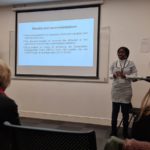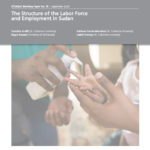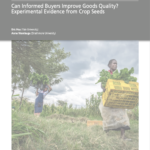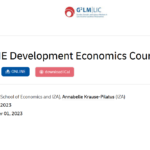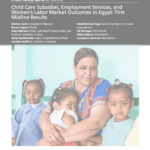Thank you to all speakers, Andy Hinsley from FCDO for contributing the introductory remarks and all participants for an interesting discussion! The online workshop assembled recent empirical evidence on possibilities to improve the position of women in the labour market and their access to it in Western and Sub-Saharan Africa and discusses policy solutions. The…
Uncategorized
New synthesis paper published!
A new G²LM|LIC synthesis paper by Michelle Rao and Gabríela Diaz-Pardo (both LSE) systematically reviews the literature on the impact of cash transfers on women’s employment and empowerment, covering 30 cash transfer programs on adult women across 19 lower and middle-income countries, using data from the G²LM|LIC Jobs of the World database. Find the paper…
G²LM|LIC Mentoring/H.E.R. – Career Structures in Economics
On March 6 and 7, a joint workshop of G²LM|LIC and LSE’s Hub for Equal Representation in the Economy (H.E.R.) took place at LSE in London. Eight mentees from the G²LM|LIC Mentoring Programme were selected to join a conference on Career Structures in Economics, to present their mentored paper and attend a session on research…
G²LM|LIC & BREAD Conference on Development Economics
On Friday, December 15 and Saturday, December 16, 2023 the G²LM|LIC and BREAD Conference on Development Economics took place in Nairobi, Kenya. The conference consisted of presentations of advanced stage research by senior or junior researchers, and presentations of early stage research by junior researchers. A special feature of the conference was that eight young…
Reminder: Call for Applications for FREE Online Development Economics Course
The IZA/FCDO Programme on Gender, Growth and Labor Markets in Low-Income Countries (G²LM|LIC) is sponsoring the ONLINE EVENT: “Development Economics Course”, January 15 – March 18, 2024. The course is free of charge for the participants. Application deadline is November 10, 2023. Watch the trailer for the course here! Students and researchers from Africa are…
The Structure of the Labor Force and Employment in Sudan
In the midst of a turbulent period in Sudan since 2018, this study meticulously examines Sudan’s labour market dynamics in 2022. With its last household survey conducted in 2011, Sudan has faced a series of significant economic and political shocks. This includes the secession of South Sudan in 2011, leading to declining per capita GDP,…
Introducing the Sudan Labor Market Panel Survey 2022
This paper introduces the Sudan Labor Market Panel Survey (SLMPS) 2022, the first nationally representative survey in Sudan in nearly a decade. It delves into the survey’s design, covering its diverse subject matter and the intricate sampling strategy. The study specifically focused on oversampling refugees and internally displaced populations. It also describes the training, fieldwork,…
Can Informed Buyers Improve Goods Quality? Experimental Evidence from Crop Seeds
This study delves into the outcomes of introducing informed buyers into a market, with a specific emphasis on improving the quality of goods offered by sellers, particularly within contexts where verifying product quality is challenging. The investigation is centered on rural markets in Kenya, with a primary focus on addressing concerns related to counterfeit or…
Call for Applications: IZA/FCDO Online Development Economics Course
We are happy to announce that the IZA/FCDO Programme on Gender, Growth and Labor Markets in Low-Income Countries (G²LM|LIC) is sponsoring the ONLINE EVENT: “Development Economics Course”, January 15 – March 18, 2024. The course is free of charge for the participants. PLEASE NOTE: This course was previously announced for September – November 2023. Due…
Child Care Subsidies, Employment Services, and Women’s Labor Market Outcomes in Egypt
The Middle East and North Africa (MENA) region has the lowest rates of female labour force participation globally. Despite improvements in women’s education, their participation in the workforce has stagnated or even declined in some countries. This is attributed to three main factors: the high opportunity cost of women’s time, limited job opportunities, and restrictive…
